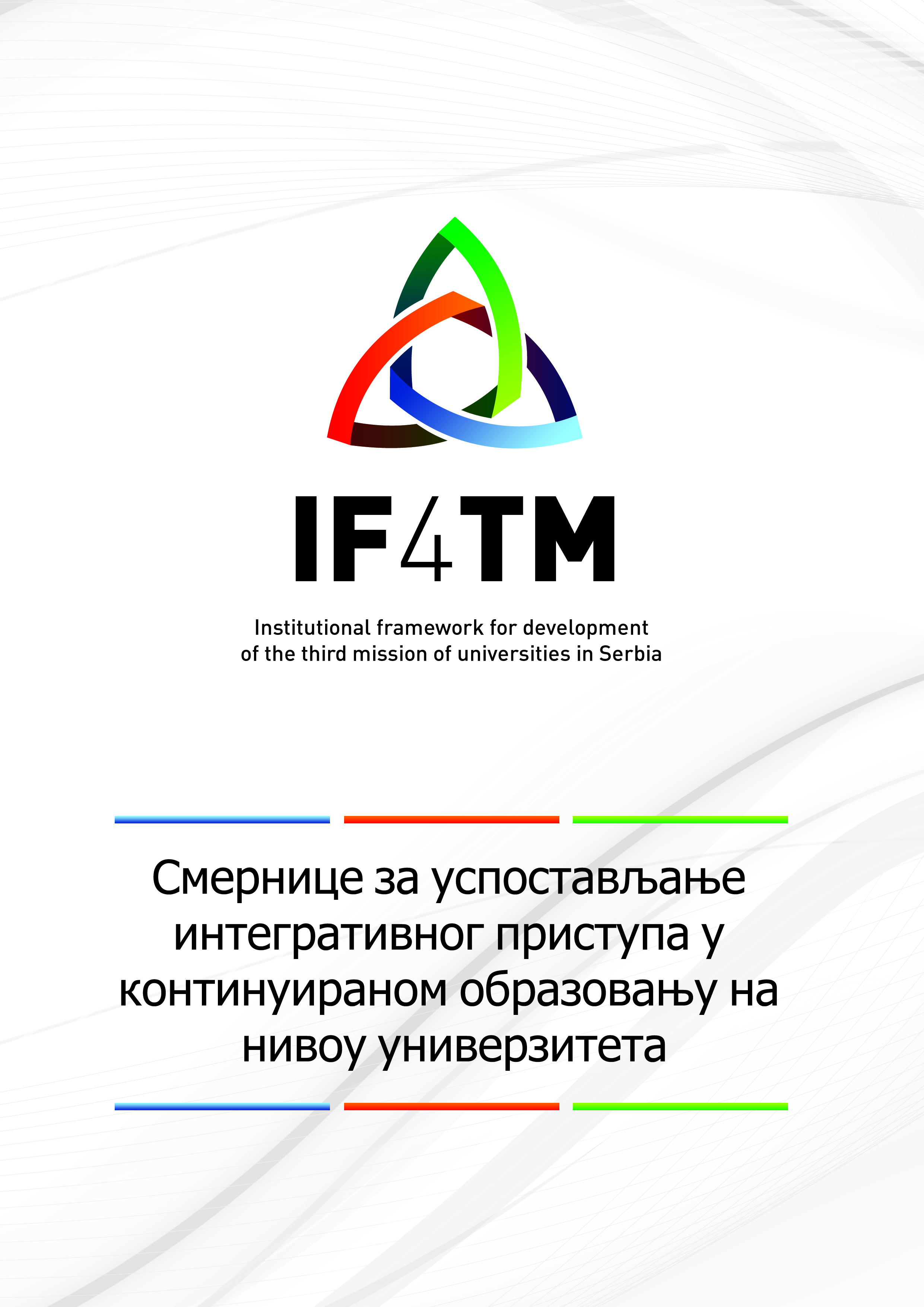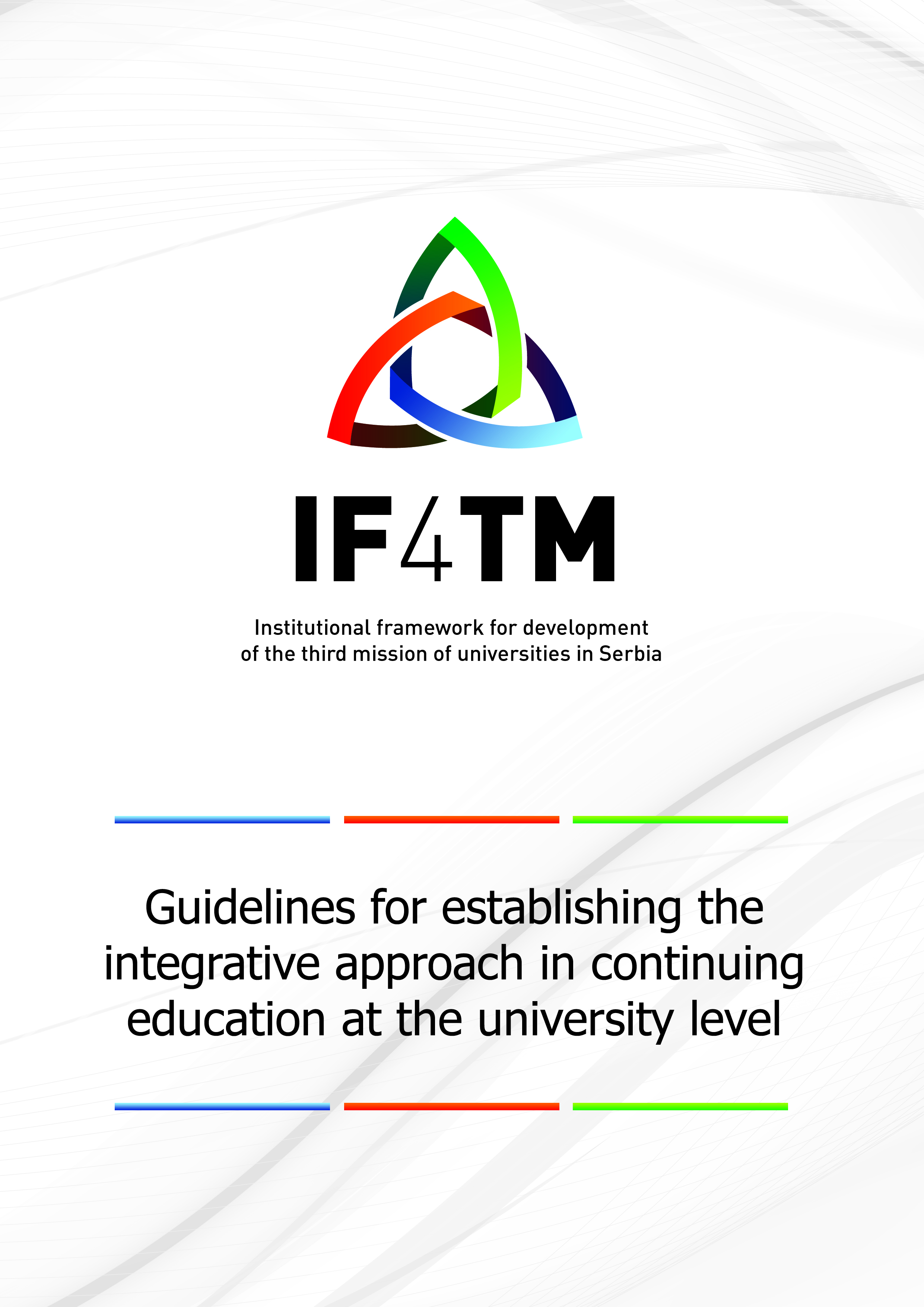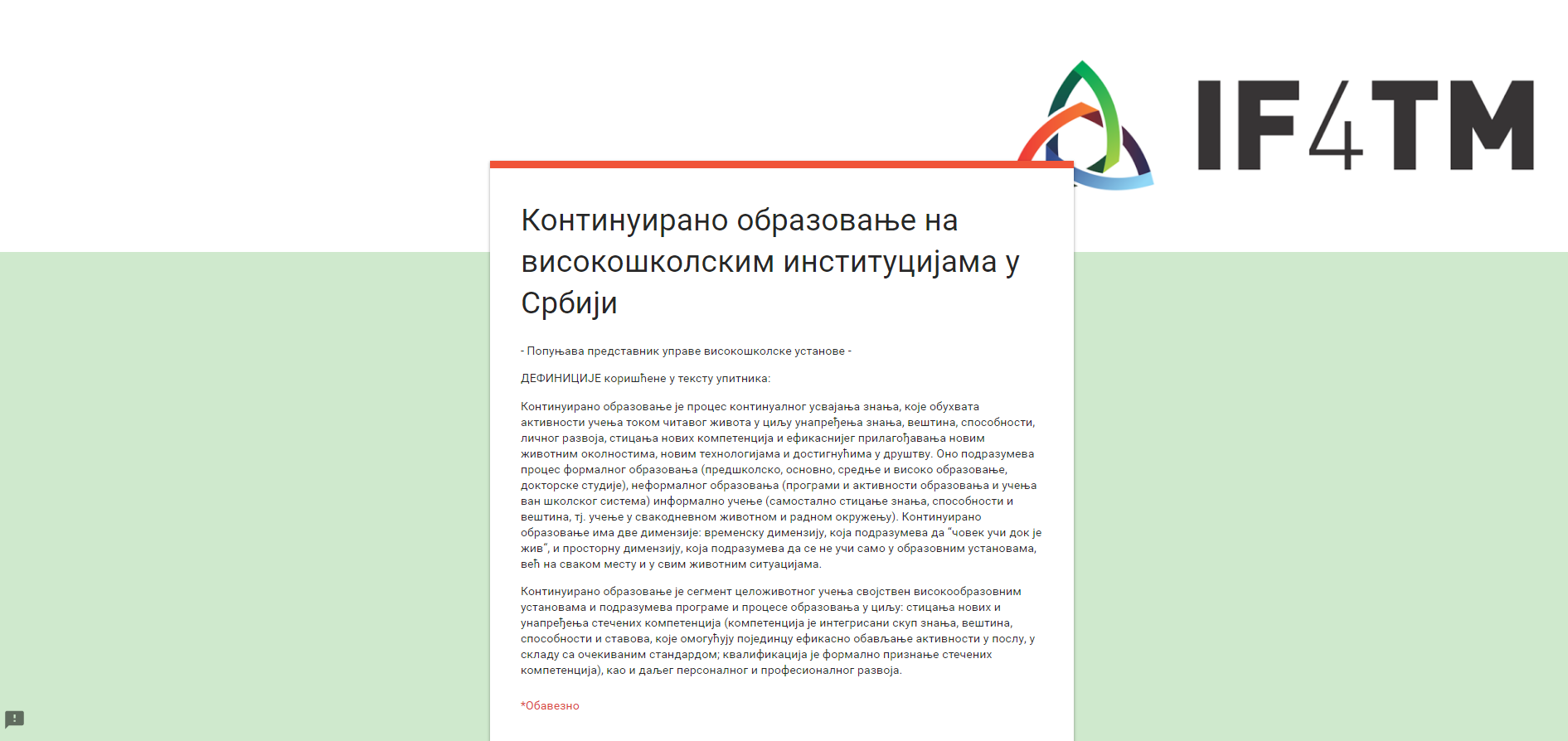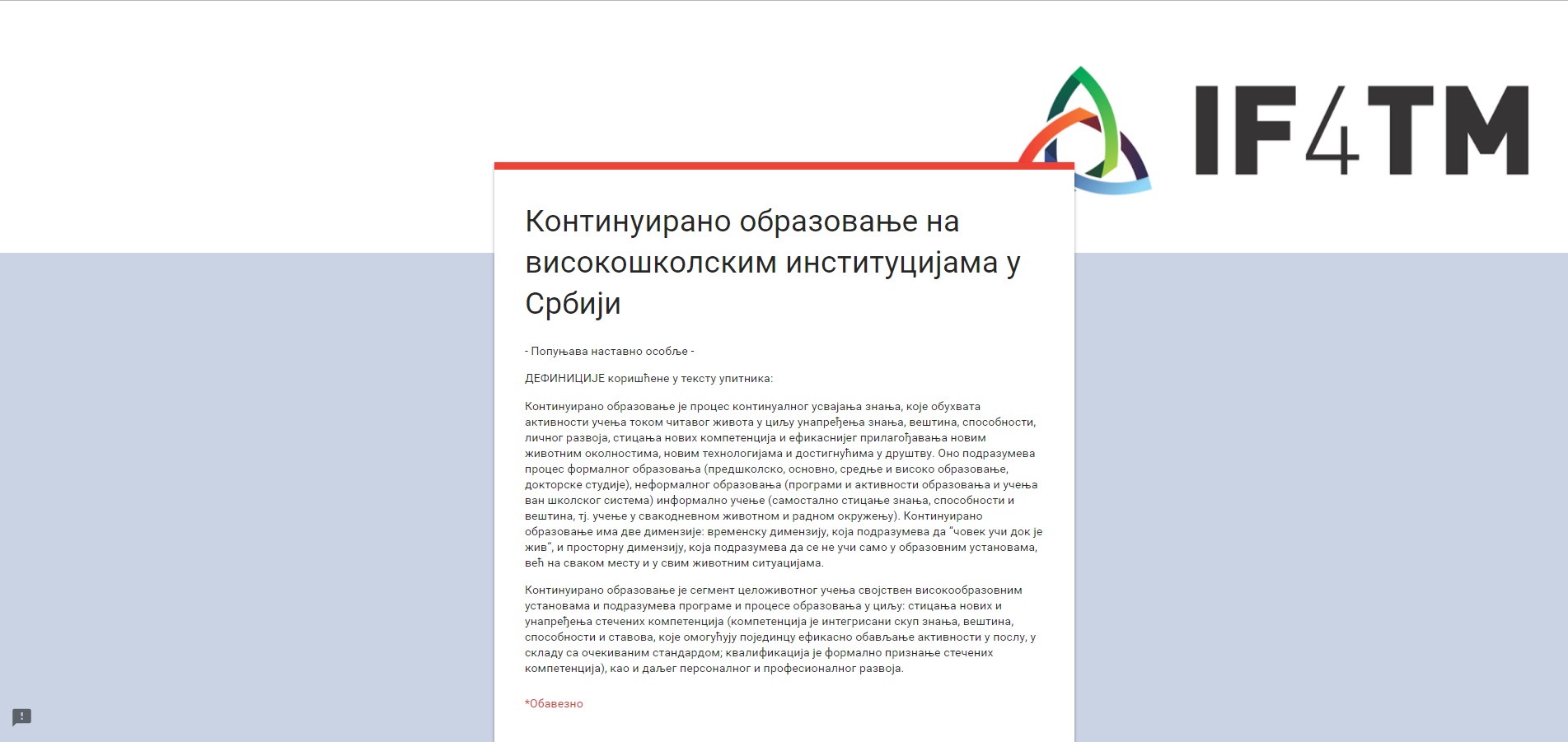Defining integrative university approach in continuing education dimension
Home / / Defining integrative university approach in continuing education dimension
Continuing education is the process of permanent acquisition of knowledge that includes the activities of lifelong learning with the purpose of improving knowledge, skills and competencies, as well as more efficient adapting to the newly emerged technologies and achievements in the society.
In order to support and facilitate not only the development of continuing education but also its implementation through integrative approach, the authors from Serbian HEIs (mostly members of Work Group 3) developed the strategic document D4.1 Guidelines for the establishment of the integrative approach in continuing education at university level.
The document defines the concept of integrative approach to continuing education, stating the benefits for both providers and users of this kind of education.
It further provides the guidelines and set of recommended measures to develop institutionally and systematically this field at Serbian higher education institutions. It covers the elements such as:
- - Development of university legal framework
- - Mapping the current offer of CE activities
- - University CE units
- - Types and scope of CE activities
- - External accreditation
- - Quality control and assessment of CE activities
- - Incentive systems for providers and users
- - Promotion of CE activities
This strategic document is designed in such a way that all Serbian higher education institutions (outside the Consortium as well) can use it in order to develop this dimension of the third mission.
Reports on mapping of CE activities on HE institutions
Report on mapping of CE activities - UKG
Report on mapping of CE activities - UBG
Report on mapping of CE activities - UNS
Report on mapping of CE activities - UNI
Report on mapping of CE activities - SUNP
Report on mapping of CE activities - BMU
Report on mapping of CE activities - TCAS
Definition of basic principles for integrative approach in CE dimension - 1st draft version When speaking on the continuous education, a clear distinction should be made regarding the terminology used to describe some CE activities and university lifelong learning (ULLL).
When speaking on the continuous education, a clear distinction should be made regarding the terminology used to describe some CE activities and university lifelong learning (ULLL).
Continuing education, adult education and professional development are all synonyms used to describe the process of gaining knowledge through education and training in order and are most commonly used during the 20thcentury.
As processes of industrialization developed, new needs for professional and personal improvement emerged in terms of increased access to information, keeping the pace with rapid technology changes, new skill requirements, the term of lifelong learning has become more and more popular.
One of the definitions of continuing education was given at the UNESCO Sub-Regional Seminar on Continuing Education which was organizes in 1987 in Canberra, Australia. The continuing education was defined as “broad concept which includes all of the learning opportunities all people want or need outside of basic literacy education and pri8mar education”.
Questionnaire 1 Questionnaire 2
Latest news
Awards ceremony for the winning student teams within the Open Innovation Campaign
(12.06.2019)Interactive Workshop "Video Game Development in Unity Platform - Ruby’s Adventure 2D RPG Project" at the Creative Center of Metropolitan University in Niš
(11.06.2019)Visiting Lecture "How to Position Products & Services on the Market Using Digital Marketing" at the Creative Center of Metropolitan University in Niš
(07.06.2019)The National Final Competition for best student idea for 2019
(03.06.2019)Visiting Lecture "Experience & Challenges in Practical Application of Agile Methodologies & Scrum" at the Creative Center of Metropolitan University in Niš
(31.05.2019)

















